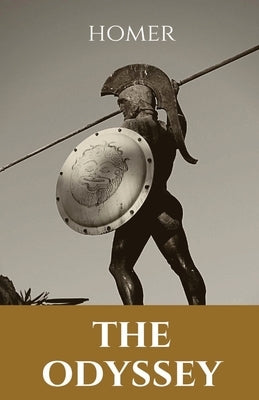Before you leave...
Take 20% off your first order
20% off
Enter the code below at checkout to get 20% off your first order
Discover summer reading lists for all ages & interests!
Find Your Next Read

The Odyssey is an epic poem that chronicles the adventures of Odysseus, also known as Ulysses, on his journey back to his homeland, Ithaca, from the moment the Trojan War ends, narrated in the Iliad, until the moment when He finally returns home, many years later. The authorship of this work, written in ancient Greek, is attributed to Homer, a poet who lived in the region of Ionia, present-day Turkey, during the eighth century B. C. As we know, the Odyssey, as well as the Iliad, were part of the ancient oral tradition, and were sung from town to town by the rapsodas, until in the 6th century B. C., Pis strado, governor of Athens, decided to compile the Homeric poems, at which point they are fixed in the written word. The oldest known version of the Odyssey is that of Aristarchus of Samothrace, dating from the second century B. C.
etiquettes:
penelope, telemachus, aeneid, trojan war, homer, aeneas, latin, iliad, hermes, patroclus, achilles, circe, la rtes, virgil, odyssey, ulysses, agamemnon, thetis, anticlea, autolycus, clytemnestra, menelaus, polyphemus, greek language, aeolus, epic cycle, danaans, achaea, aeschylus, sophocles, nestor, euripides, hecuba, neoptolemus, heracles, philoctetes, palladium, trojan horse, ajax the great, scylla, cyclops, calypso, greeks, epithet, trojan war, iliad, odyssey, legend, ionia, odysseus, turkey, classical antiquity, literary language, ionic greek, contest of homer and hesiod, herodotus, renaissance, troy, virgil, agamemnon, achilles, ithaca
Thanks for subscribing!
This email has been registered!
Take 20% off your first order
Enter the code below at checkout to get 20% off your first order